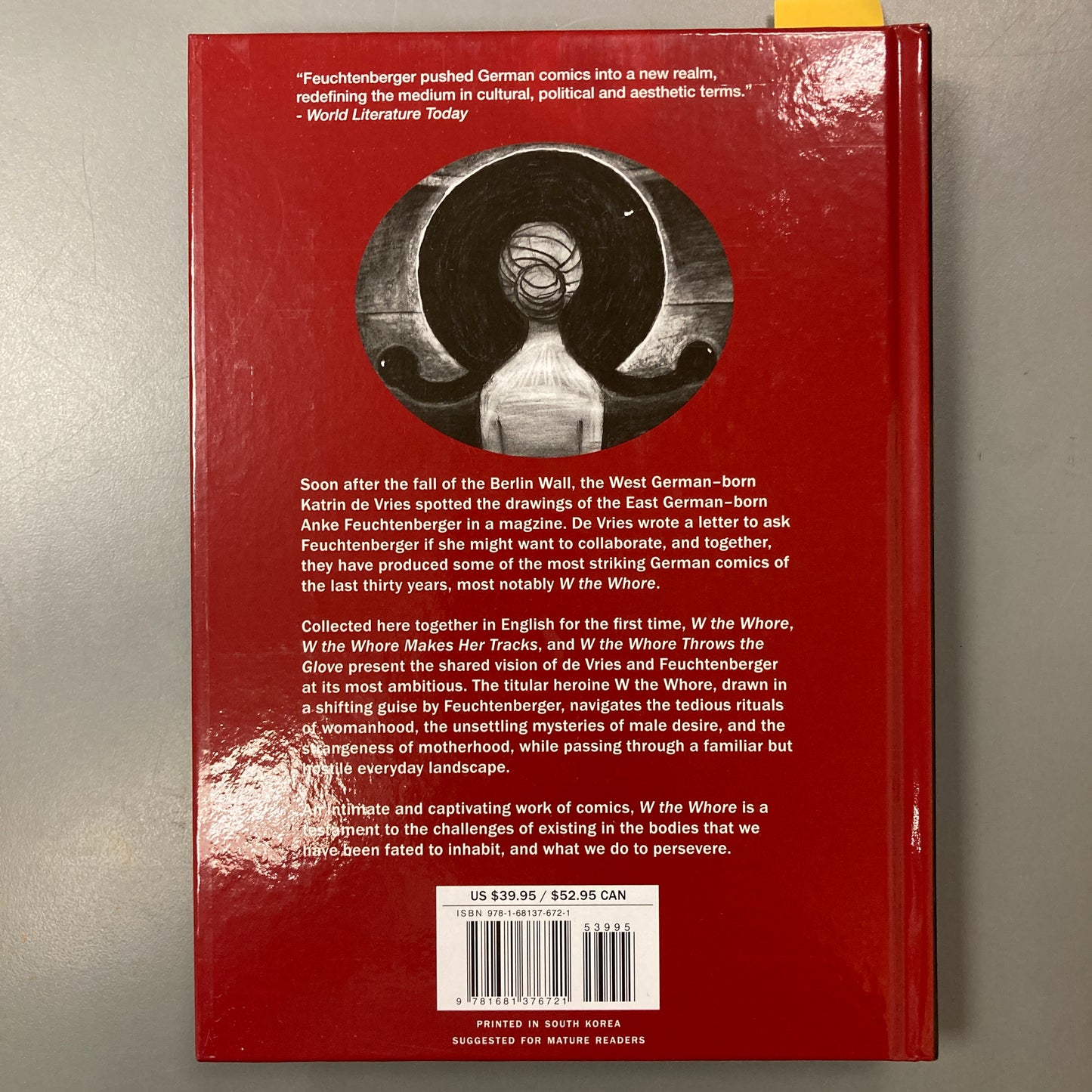W the Whore (Hardcover)
W the Whore (Hardcover)
Couldn't load pickup availability
*This collected edition contains all the Bries published W the Whore volumes.
By Anke Feuchtenberger & Katrin de Vries. Translated by Mark David Nevins. Published by New York Review Comics.
Hardcover, 256 pages, B&W, 2022.
Soon after the fall of the Berlin Wall, the West German–born Katrin de Vries read a magazine featuring the drawings of the East German–born Anke Feuchtenberger. De Vries wrote to ask Feuchtenberger if she might want to collaborate, and together they’ve produced some of the most striking German comics of the last thirty years, most notably W the Whore.
Collected here in English for the first time, W the Whore, W the Whore Makes Her Tracks, and W the Whore Throws the Glove present the shared vision of de Vries and Feuchtenberger at its most ambitious. The titular heroine, W the Whore, drawn in a shifting guise by Feuchtenberger, navigates the tedious rituals of womanhood, the unsettling mysteries of male desire, and the strangeness of motherhood, all while moving through a familiar but hostile everyday landscape of houses, factories, rail yards, and other ominous structures. An intimate and captivating work of comics, W the Whore is a testament to the challenges of existing in the bodies that we have been fated to inhabit, and what we do to persevere.
Trained under the doctrines of socialist realism, engaged in traditional printmaking techniques obsolete in West German art academies, and working without an established comics canon, Feuchtenberger pushed German comics into a new realm, redefining the medium in cultural, political and aesthetic terms. As an artist, Feuchtenberger redefined the potentials of the comics form through her engagement with diverse sources and new techniques in graphic narration, elevating the medium to an art form.
—Elizabeth Nijdam, World Literature Today
W the Whore—like many other characters in Feuchtenberger’s dream worlds—encounters prefabricated patterns, powerful social structures that she would like to co-opt and assimilate. But these patterns and orders are random, questionable and replaceable. Breaking up, expanding and exploring are part of Feuchtenberger’s process. Her comics are treatises, ‘graphic essays.’ The clear drawings, pencil on paper or charcoal on canvas, leave a lot of free space, white surfaces creating contrasts between darkness and luminosity.





